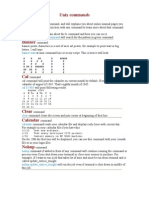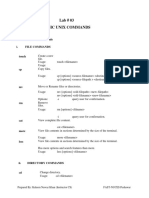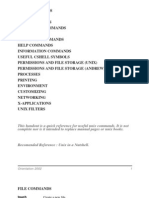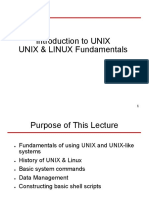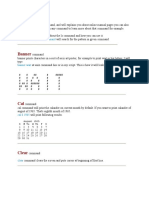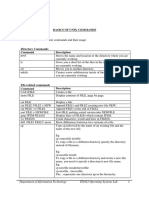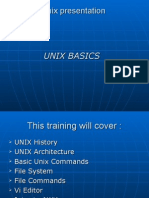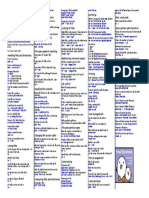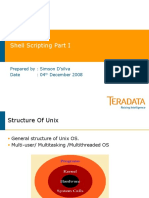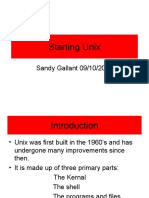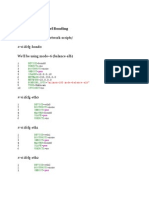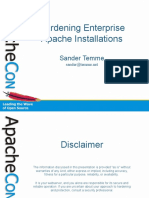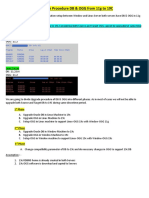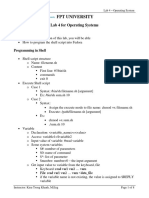0% found this document useful (0 votes)
5 views2 pagesUNIX Commands CheatSheet
This document is a cheat sheet for UNIX commands, detailing their purposes and common options. It includes commands for file management, process monitoring, and system utilities, as well as information on the vi editor, shell types, wildcards, and shell scripts. Each command is presented with its functionality and relevant options for ease of reference.
Uploaded by
sanatanh593Copyright
© © All Rights Reserved
We take content rights seriously. If you suspect this is your content, claim it here.
Available Formats
Download as PDF, TXT or read online on Scribd
0% found this document useful (0 votes)
5 views2 pagesUNIX Commands CheatSheet
This document is a cheat sheet for UNIX commands, detailing their purposes and common options. It includes commands for file management, process monitoring, and system utilities, as well as information on the vi editor, shell types, wildcards, and shell scripts. Each command is presented with its functionality and relevant options for ease of reference.
Uploaded by
sanatanh593Copyright
© © All Rights Reserved
We take content rights seriously. If you suspect this is your content, claim it here.
Available Formats
Download as PDF, TXT or read online on Scribd
/ 2

